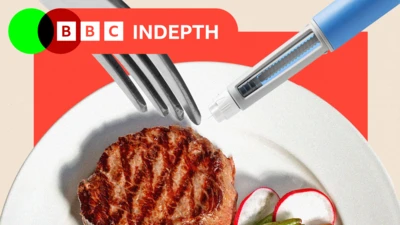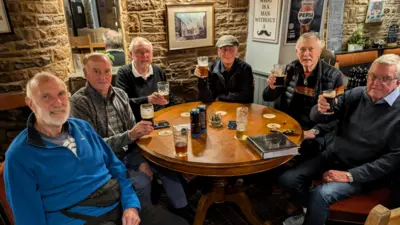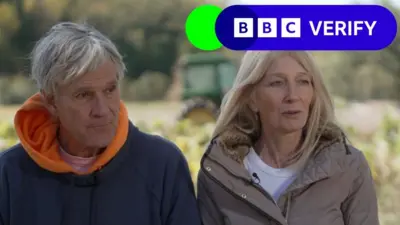We've updated our Privacy and Cookies Policy
We've made some important changes to our Privacy and Cookies Policy and we want you to know what this means for you and your data.
Brexit: Olly Robbins heads to Brussels
Image source, Reuters
- Author, Laura Kuenssberg
- Role, Political editor
Are the talks between the government and the opposition dead? Not yet.
Olly Robbins, (remember him?) the government's Brexit negotiator, is off to Brussels on Tuesday to talk about how long it might take, and how the broad outline of the future arrangement between the EU and the UK could be changed if there were to be some kind of deal.
On its own, that sounds rather promising. It's been a demand from Labour that there would be changes to the so-called political declaration so that any compromises can be trusted.
And broadly, the actual policies of the two main Westminster parties aren't so far apart after all.
If you squint at the detail you can just about see where, with some understanding, and urgency, they could collide.
Remember the political declaration, that guide to the future, is rather helpfully vague. One cabinet minister told me tonight "we could sort the real policy differences out in an afternoon".
Of course there are disagreements on detail, tone, and ambition for the long term outcome. But if these talks fail it won't be because the two parties have an entirely different set of ideas about our actual departure when it comes at least to the first part of Brexit, the divorce deal withdrawal agreement.
This process though is not just about the policy, it's about the politics too.
And with unease on the Tory side, expressed explicitly in a letter to Theresa May today from former ministers, about softening up their Brexit plan at all, and division on the Labour side about signing up to anything without a promise of another referendum, the reality of getting anything agreed threatens to choke it off.
And as each day passes it becomes harder - Theresa May's hold on government becomes more slippery, undermining her chances of selling anything to her party, and eroding Labour's faith that they could sign up to anything that lasts.
And actors on both sides do agree on something - that while they talk, rather than decide, it's leaving a vacuum that makes the divisions at Westminster and beyond worse.
The visible agonies of their attempts to compromise are making more space for those offering clear sounding solutions - whether that's leaving without a deal, changing the prime minister or holding another public vote.
The cabinet and shadow cabinet share the fears that their respective parties suffer in an increasingly brutal and binary Brexit debate.
But they seem unlikely to take bold moves suddenly to shift their attitude to doing a deal, when they meet separately and discuss the status of the talks on Tuesday morning.
Another Eurostar trip for Olly Robbins is unlikely to change that.
Top Stories
More to explore
Most read
Content is not available








